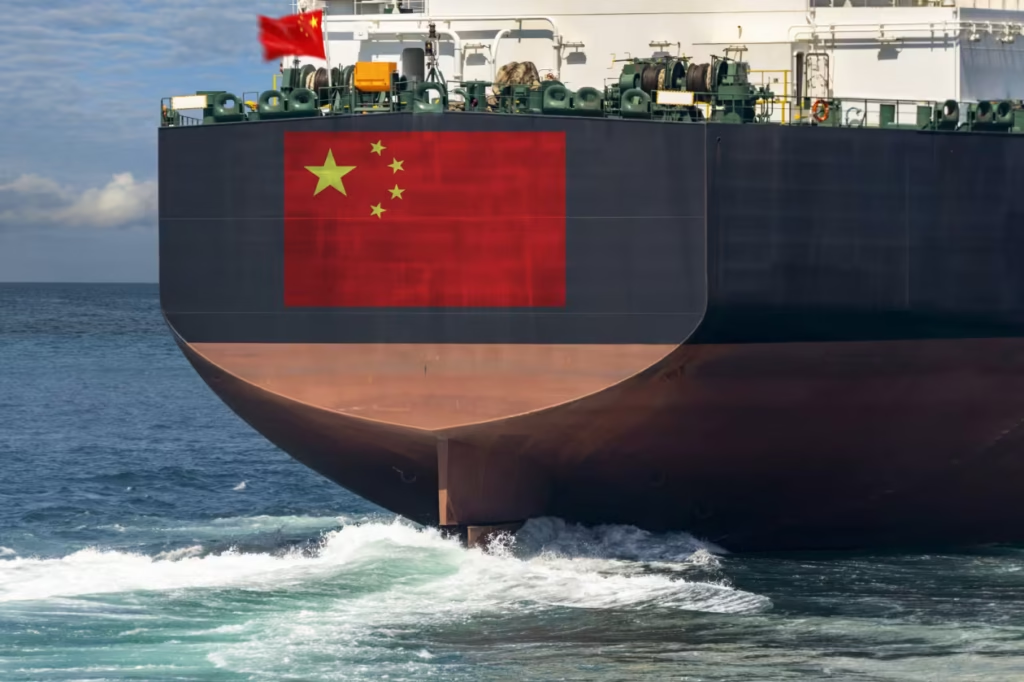With more than half of the world’s cargo capacity and more than half of the order book for new ships, China is the global leader in shipping and shipbuilding.
The trade battle between the US and China is becoming more tense. China’s penalties against five U.S. subsidiaries of South Korea’s Hanwha Ocean shipbuilding company have added a new dimension to the long-running issue.
The subsidiaries were charged by China’s Commerce Ministry on Tuesday with “assisting and supporting the U.S. government probes and measures against Chinese maritime, shipbuilding, and logistics sectors.”
At one point during Tuesday’s trading, shares of Hanwha Ocean (KR:042660) fell 8%, while U.S. stock futures (ES00) fell due to concerns that the commercial dispute between the United States and China is intensifying rather than decreasing in advance of the Trump-Xi summit in Seoul on October 29.
President Donald Trump’s threat to impose 100% tariffs on China and new limits on exports of essential software last week rekindled the continuing trade battle between the two countries, which includes the most recent events. This was a reaction to Chinese actions to limit rare earth exports to the United States.
Meanwhile, China’s Ministry of Transport declared that it will launch a counter-examination against Washington’s Section 301 investigation, in which the United States has been examining China’s dominance of the world’s shipping market. Whether the United States has engaged in “discriminatory restrictive behaviors” against China’s shipping and shipbuilding industries will be determined by the country’s investigation.
Since the United States owns only 2.9% of the world’s fleet, Washington is concerned about China’s maritime control. According to Hanwha Ocean, which paid $100 million to purchase the Philly shipyard in Pennsylvania last year, South Korea has actually played a significant role in helping America regain its shipping capacity.
Tit-for-tat fines were already introduced this week and are levied by both sides on ships that dock in each other’s ports. $50 per ton will be charged by both parties, which is a substantial expense given that cargo ships may carry cargoes of up to 250,000 tons.
Due to the potential effects on global inflation and business activity, the markets are uneasy about this most recent front in the trade war. Eighty percent of all goods traded globally are transported by sea.
Economists may decide to see these recent disputes as a part of the negotiating process and as a struggle for influence before the Trump-Xi summit at the end of the month.
In recent weeks, the two counterparties have been engaged in negotiations. “China wants to pull everyone else down,” for instance, Treasury Secretary Scott Bessent said in an interview with the Financial Times today. He also said, “…if they want to slow the global economy, they will be hurt the most.”





